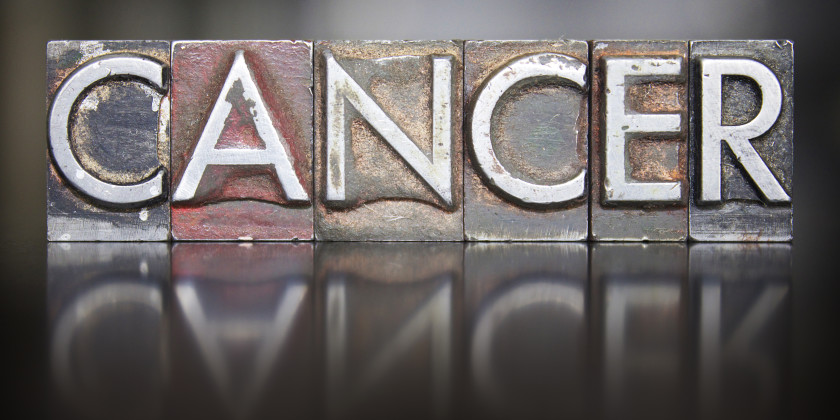In 2013, there were an estimated 587,426 people1 living with bladder cancer in the United States. That’s more than the number of people residing in Albuquerque, N.M2 . Each year in the United States, about 54,000 men and 17,000 women get bladder cancer, and about 11,000 men and 4,500 women die from the disease3 .
The National Cancer Institue (NCI) provided the following insights about Bladder Cancer4 . Although urinary bladder cancer incidence rates are much higher in whites than in African Americans, mortality (death) rates are only slightly higher, due in large part to the later stage at diagnosis among African Americans. Incidence and mortality rates have changed very little for most racial and ethnic groups over the past 20 years, with the exception of African Americans, for whom mortality has been decreasing. Overall, men are about four times more likely than women to be diagnosed with bladder cancer. Since 2001, mortality rates have been stable in men and slowly declining in women.
What Is the Bladder?
The bladder (sometimes called the urinary bladder) is a balloon-shaped organ in your lower abdomen, near the pelvis. It stores urine from the kidneys until it is passed out of the body.
Risk Factors for Bladder Cancer?
Smoking is the most important risk factor for bladder cancer. Other risk factors include—
- Having a family history of bladder cancer.
- Having certain gene mutations (unusual changes made when your body’s cells are dividing).
- Being exposed to too much of certain workplace chemicals used in processing paint, dye, metal, and petroleum products.
- Taking some kinds of chemotherapy drugs.
- Drinking well water contaminated with arsenic.
- Taking the Chinese herb Aristolochia fangchi.
- Having chronic urinary tract infections (including those caused by Schistosoma haematobium).
To lower the risk of bladder cancer, don’t smoke (and if you do, quit) and be especially careful around certain kinds of chemicals5 . Arsenic, Benzene, Wood Dust and Asbestos are examples of chemicals that could increase your risk of bladder cancer. Additional exposures may include substances such as the chemicals in tobacco smoke, or radiation, such as ultraviolet rays from the sun.
What Are the Symptoms of Bladder Cancer?
- Blood in the urine. This is the most common symptom.
- Having to urinate often.
- Pain while urinating.
- Back pain.
- Pelvic pain.
These symptoms can also come from other conditions. If you have any of them, talk to your doctor, which is the only way to find out what may be causing them.
Statistics
In the United States in 2013 (the most recent year for which numbers are available) from the National Cancer Institute6 —
- 70,951 people (53,921 men and 17,030 women) got bladder cancer.*

Having a family history of bladder cancer is a risk factor.
- 15,757 people (11,294 men and 4,463 women) died from bladder cancer.*
- Men were about four times as likely as women to get bladder cancer, and white people had higher rates of bladder cancer than people of other races and ethnicities.
- Among men, white men had the highest rates of getting bladder cancer (37.0 per 100,000 men), followed by black men (19.4), Hispanic† men (18.8), Asian/Pacific Islander men (14.7), and American Indian/Alaska Native men (14.4).
- Among women, white women had the highest rates of getting bladder cancer (9.0 per 100,000 women), followed by black women (6.5), Hispanic†women (5.2), American Indian/Alaska Native women (4.4), and Asian/Pacific Islander women (3.6).
Many Black Americans feel that they are talked down to by the doctor and that the whole experience is stressful. This reinforces the idea that African Americans believe they are always under attack from law enforcement and some media outlets. Local and state governments allocate few resources to improve their neighborhoods. Jay Harold has a post “Talking to Doctor Presents Challenges for African Americans” that describes some of the obstacles to good healthcare Black Americans face.
Click this link to get free Health and Wealth information to improve your life. Enjoyed this post? Share it and read more here. Questions? “Ask the Pharmacist a Question!” Jay Harold is always looking out for your health and wealth.
Bibliography
- http://seer.cancer.gov/statfacts/html/urinb.html
- http://www.infoplease.com/ipa/a0763098.html
- http://www.cdc.gov/cancer/bladder/index.htm
- https://www.cancer.gov/research/progress/snapshots/bladder
- https://www.cancer.gov/about-cancer/causes-prevention/risk/substances
- http://www.cdc.gov/cancer/bladder/index.htm





